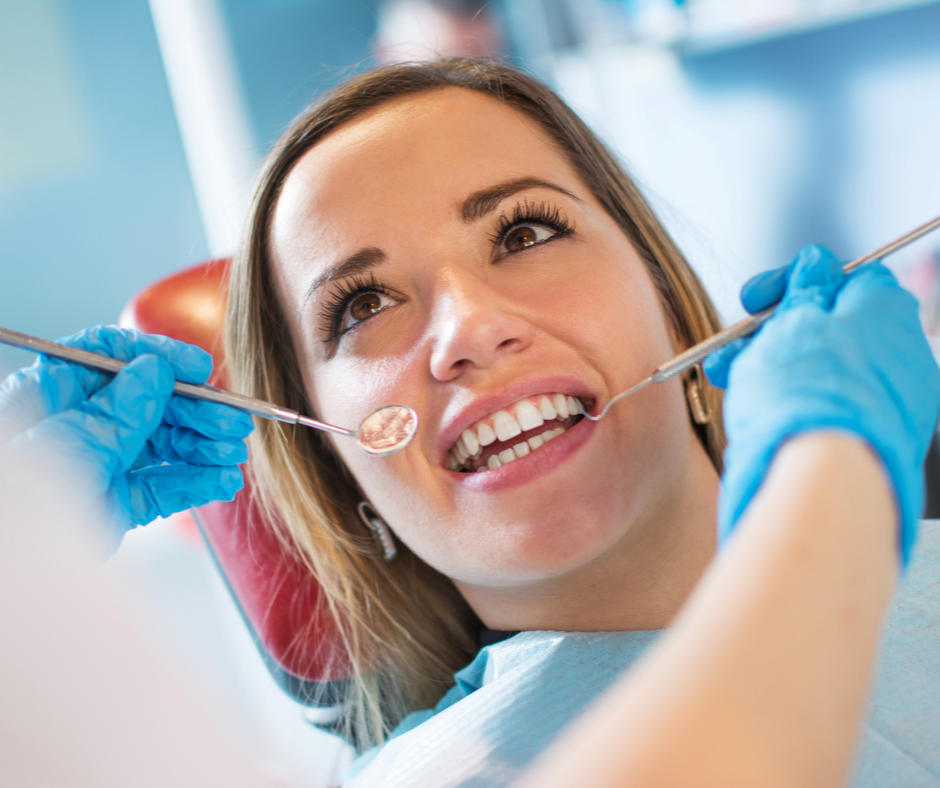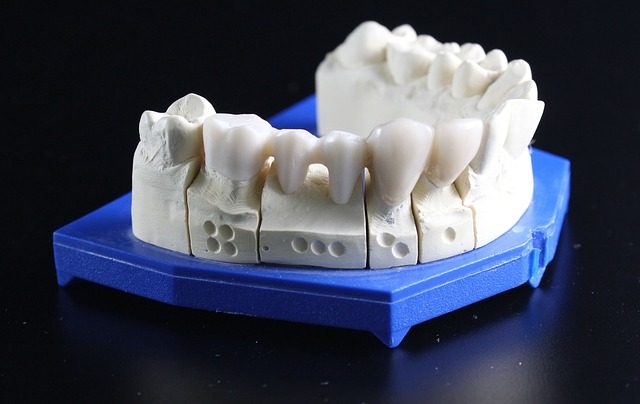
What Is A Dental Onlay?
You’re enjoying a scoop of Skittles, a second handful that you probably didn’t need. You bite down and there’s a snapping noise, and that doesn’t seem right. Your tongue instantly finds the cause: A large piece of your lower right molar has gone missing, and you already swallowed it.
Although you feel a little panicky, odds are that your tooth has had a minor setback that can be overcome. Teeth, the hardest substance in our bodies, experience a lot of functional stress day after day. This hard, crystal structure may develop small cracks, especially if there’s a filling sitting in the center of it. Millions of chewing cycles combined with quick changes in temperature from food. Drink often create micro-fractures that grow in size over time.
Destined to Break
It’s easy to blame the Skittles, but they’re just the final straw on the wear-and-tear of chewing. Fortunately, most teeth don’t need to be removed even if they break. In fact, most of them don’t require root canal treatment, either. A broken tooth may be sensitive to cold and jagged to the tongue, but chances are on your side that it can be fixed.
When weighing the range of options to repair a broken tooth, dentists consider the most conservative options to offer. We need a material that can handle up to 300 pounds per square inch, of force while replicating natural tooth structure in many ways. Fortunately, modern dental materials allow us to rebuild teeth to full strength and preserve good tooth structure at the same time.
Is It Worth Fixing?
You can leave a broken tooth untreated, but there are risks when a weakened tooth remains damaged. Ultimately, the danger of losing the tooth runs much higher than if you choose to keep the tooth. While teeth may need to be fully covered with a dental crown, some smaller fractures can be repaired with a dental onlay. A crown takes a little more tooth shaping to fit, but onlays allow the unbroken portions of a tooth to remain uncut. A custom piece of porcelain, like a partial crown, is bonded into the damaged section. In this way, it “lays on” the damaged areas but leaves the rest of the tooth unaltered.
Onlays invisibly blend with the natural enamel and increase both function and appearance. The remaining tooth must be sound, an assessment that our dentist makes with exam and xrays. When the most conservative option fits your particular situation, your dentist suggests an onlay for an exceptional restoration.
And you’ll be grabbing a handful of Skittles again before you know it! But don’t forget to brush afterwards!
Visit 4 Benefits of Straight Teeth
Best dental machines of 2019
We are discussing various dental subjects and dental care topics on DentalChat. We welcome local dentists to share their dental knowledge with us, as many of our Dental Chat users are always looking for great dental information. In this local dentist blog, we will be discussing the Best Dental Machines of 2019 – more specifically, looking to have the list of Best Dental Machines by end of 2019.
We are at DentalChat.com looking at the listing the Best Dental Machines for dentists in 2019. If you have a dental product or dental machine that you feel should be part of this list – email us at service@dentalchat.com.
Dental imaging machine blog:
Right now there are some exciting new pan 3d x-ray machines and ceph x-ray machines that have come to the market, with some exciting new technologies. The software improvement of many of these dental imaging machines is constantly getting better. We like dentists to share their thoughts as to the best dental imaging machines in the market today.
We at DentalChat.com will be attending various dental events and dental conventions – to view and report back to our readers. Many patients like their dentist to have the best dental machines on the market.

Older Population / Elderly are keeping and maintaining Their Teeth Longer with better Dental Care
- Older Population / Elderly are keeping and maintaining Their Teeth Longer with better Dental Care:
Dentistry is on the cutting edge of new technology to help patients keep and maintain their teeth longer. In the coming years, as more tech innovation is happening in the dental field – dental care is improving for many to be able to keep their teeth longer. Older Population / Elderly are keeping and maintaining Their Teeth Longer with better Dental Care. 50 years ago, the dental technology available was sparse at best. Now, with dental implants and advanced periodontal treatments available, more and more people in their 60’s, 70’s and 80’s are maintaining their teeth.
Online Dental Marketing, Local Dentist Discussion, Local Dentists Chatting Online, Local Emergency Dental Chat Online and Local Dental Blogging Online with us .We are at DentalChat.com are networking with local dentists and dental businesses. DentalChat.com wants to discuss various dental topics and dental issues online. Our dentalchat users can share with us what they want us to discuss here. Dental bloggers, social media groups or dentists can share articles with us. We want to bring value for our users on here. We appreciate all the content people have been sharing with us.
Dental Care for the elderly – this can include periodontal treatment including root planing, gum graft surgery, dental implant placement and dental pocket reduction periodontal procedures. Now dental laser treatment is also helping a lot in this process. As people are living longer, they are expecting to maintain their teeth longer. Now for instance, even those who end up with dentures, can have dental implants placed in them.

Can people with Diabetes have Dental Health Problems?
- Can people with Diabetes have Dental Health Problems?
- Dental Chat Online @ DentalChat.com:
- Dental Care for children with diabetes:
Can people with Diabetes have Dental Health Problems? The simple answer is yes. Diabetes as we know, can effect many areas of the body including the eyes, kidney or heart — and also it can effect the mouth in the form of Periodontal problems / gum problems – as well as more cavities as some may have less saliva in mouth (saliva helps us against cavities). This can cause bone loss around the tooth which can lead to in severe cases if untreated to tooth loss. Your dentist should be made aware if have diabetes / also, they will see bone loss during dental exam and xrays. Making sure your dentist is aware of patients that have diabetes, this way they will look for any potential dental treatments. One of the things dentists will look for in patients with diabetes is that the patient may have less saliva / the mouth feels more dry. This can cause a possibility of getting more dental cavities – though, if get regular dental prophy and do proper tooth brushing / flossing, then should help reduce this.
There are many ways to treat periodontal problems – this may include getting an extra dental prophy (your dentist will evaluate) or root planing/ scaling. The one key is for people to go get regular dental prophy / dental exam at your local dental office. Dentists can see if have periodontal problems with larger “pockets” around the teeth / and most likely more bleeding when they probe / examine the dental gum areas of your mouth. With diabetes, poor blood glucose control makes gum problems more likely. Diabetes can make gum disease worse. Hence, good idea to take extra care with proper tooth brushing, flossing and regular dental prophy.
Dental Care for children with diabetes – children with diabetes sometimes get their teeth to erupt earlier than normal. Generally, children with diabetes some dentists and studies have shown that having morning dental appointments and making sure your child has had breakfast before appointment / make sure child eats breakfast before appointment (good to have them brush their teeth after breakfast when going into the dental office).
Can Dental Chat Online and do Dental Topic Discussion with us @ DentalChat.com — We welcome feedback from our readers and if they want to share their suggestions with us. DentalChat is networking with dental bloggers and dental information sites.

Bruxism – Grinding of Teeth while Sleeping / Dental Blog
- Bruxism – Grinding of Teeth while Sleeping / Dental Blog:
